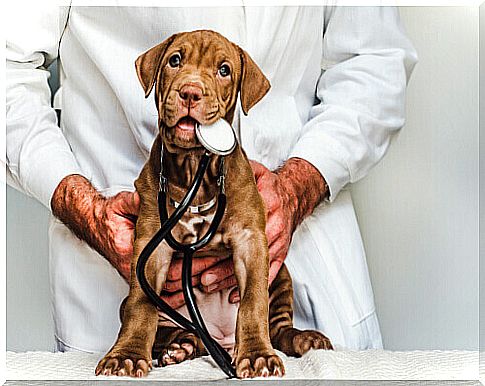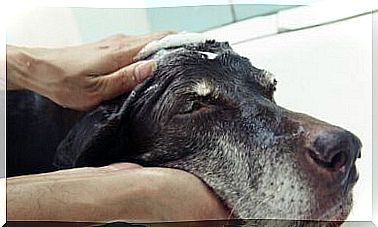Clinical Examination Of The Puppy: Is It Important?

The clinical examination of the puppy gives the animal the best start in life so that it can grow healthy and strong. Then, when the dog is already at your house, one of your first tasks is to make an appointment for your new best friend to do a veterinary evaluation.
Top reasons to take your puppy for a clinical exam
If you are new to the adventure of raising a puppy, keep in mind that your puppy will need to follow a vaccination schedule. In addition, regular assessments will ensure timely monitoring of the animal’s growth. You’ll also want to make sure you’re on the lookout for any potential problems.
When is the ideal time for the first clinical examination?
If you have purchased a pedigreed puppy from a breeder, it is normal for a veterinary examination to be included in the sales contract within three days of delivery.
On the other hand, if your dog comes from a shelter or rescue center, it is common for the animal to be ill. Therefore, it is vital that a good veterinarian assesses the puppy as soon as possible.

What procedures to expect in a puppy clinical examination
First, the animal will undergo a complete physical examination to determine its health. The veterinarian will check for external parasites such as fleas, ticks, lice or ear mites.
The initial vaccinations or a discussion of the types of vaccinations your puppy needs and when they should be scheduled is especially important. This first consultation will cover crucial tasks such as removing worms and implanting microchips . Finally, neutering or neutering your dog will be discussed.
What is the physical exam?
The clinical examination of the puppy includes a series of procedures: determination of weight and measurement of body temperature. There is also an examination of the animal’s eyes, nose, ears, feet and genitals, as well as auscultation of the lungs and heart with a stethoscope.
In addition, the veterinarian will gently palpate the dog’s lymph nodes and abdomen. The veterinarian will also examine the animal’s mouth and teeth, coat and skin. After the physical examination, the veterinarian should ask general questions about the puppy’s history and will answer any questions you may have.

Neutering or neutering the puppy
Many veterinarians believe that these procedures not only help solve the serious problem of unwanted overpopulation of pets, but also make pets friendlier, making coexistence easier.
Sterilization removes a female dog’s uterus and ovaries, usually around six months. In a major surgical procedure performed under general anesthesia, complications are rare and recovery usually ends within two weeks.
In castration, the testicles are removed and it is also a procedure performed under general anesthesia. It is usually done when the puppy is about six months old and requires only a short hospital stay. Full recovery takes 7 to 10 days.
What should I know about pet insurance?
Your veterinarian can also talk to you about pet insurance. Taking out this type of insurance is intended to cover the costs of treating any serious condition of your pet that would otherwise be impossible to pay.
It is important to note that the cost of pet insurance is generally low. In addition, buying insurance can mean the difference between being able to apply life-saving treatment and euthanasia.









